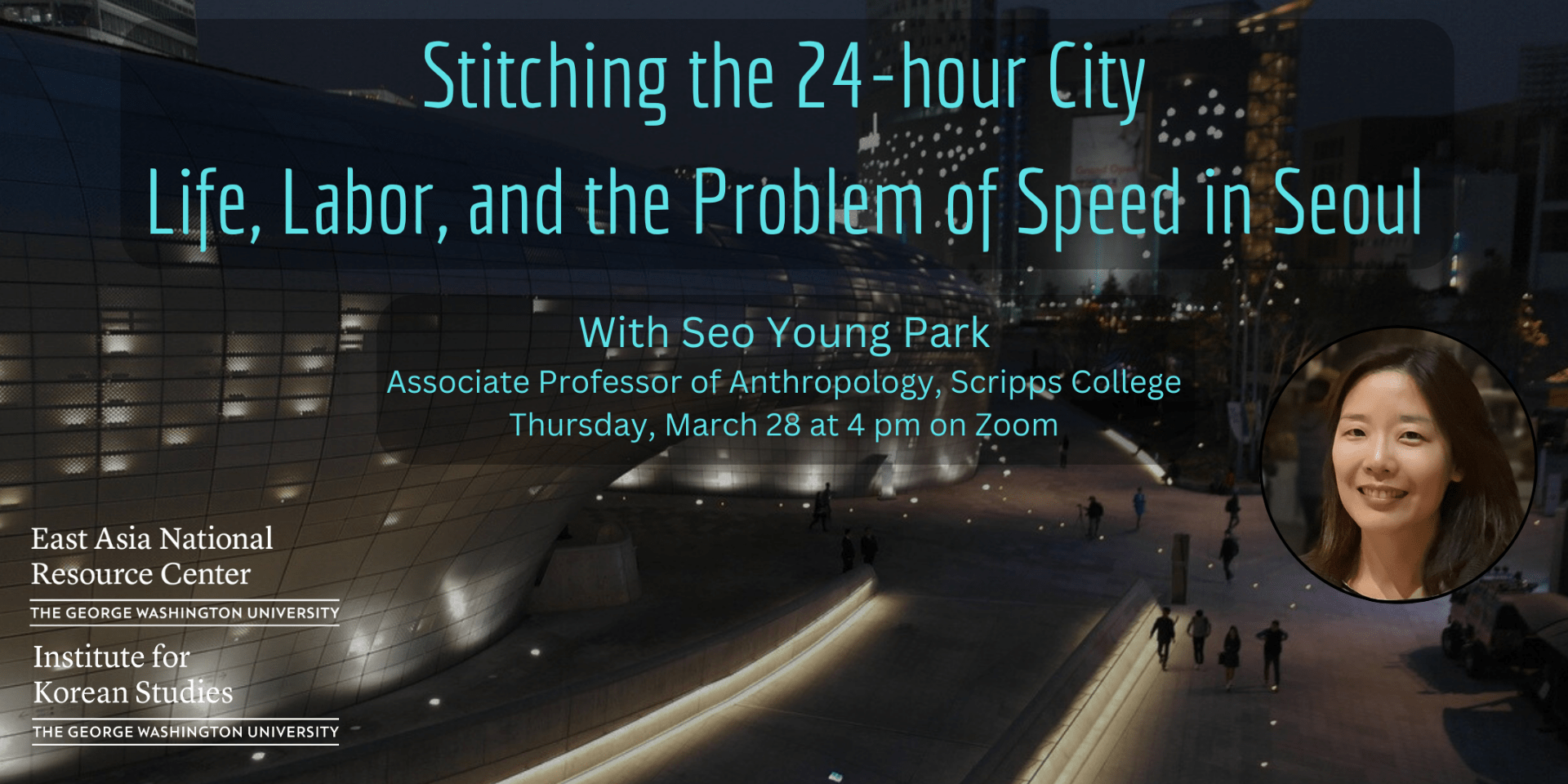
Thursday, March 28th, 2024 · 4 – 5:30 pm EST
Virtual talk on Zoom
About this event:
Seo Young Park’s book, Stitching the 24-Hour City: Life, Labor, and the Problem of Speed in Seoul, reveals the intense speed of garment production and everyday life in Dongdaemun, a lively market in Seoul, South Korea. Once the site of uprisings against oppressive working conditions in the 1970s and 80s, Dongdaemun has now become iconic for its creative economy, nightlife, and fast-fashion factories, and shopping plazas. Park follows the work of people who witnessed and experienced the rapidly changing marketplace from the inside. Through this approach, Park examines the meanings and politics of work, focusing on what it takes for people to enable speedy production and circulation and also how they incorporate the critique of speed in the ways they make sense of their own work. Stitching the 24-Hour City provides in-depth ethnographic accounts of the garment designers, workers, and traders who sustain the extraordinary speed of fast fashion production and circulation, as well as the labor activists who challenge it. Attending to their narratives and practices of work, Park illuminates how speed is, rather than a singular drive of acceleration, an entanglement of uneven paces and cycles of life, labor, the market, and the city itself.
About the speaker:
Seo Young Park is an Associate Professor of Anthropology at Scripps College and works on cities, urban environments, labor, and gender in South Korea and broader East Asia. Her first book publication, Stitching the 24-Hour City, received an Honorable Mention for the Hsu Book Prize in 2022 from the Society of East Asian Anthropologists.
Registration
The event is open to the public. Guests who register for the event will receive details for joining the Zoom meeting.
The Sigur Center for Asian Studies and GW Institute for Korean Studies (GWIKS) together received the highly regarded designation of National Resource Center (NRC) for East Asian Studies. The designation — the first time these two centers have received NRC status — enhances the institutes’ ability to engage the broader public community, including students, K-12 educators, HBCUs, policymakers, military veterans, journalists and the general public on regional and global issues of importance. With this award, GW joins a handful of other world-leading universities with this honor, including Stanford, Columbia, and the University of Chicago. Additionally, the Sigur Center and GWIKS have been awarded funding for Foreign Language and Area Studies (FLAS) Fellowships which support undergraduate and graduate students studying modern foreign languages and related area or international studies.


